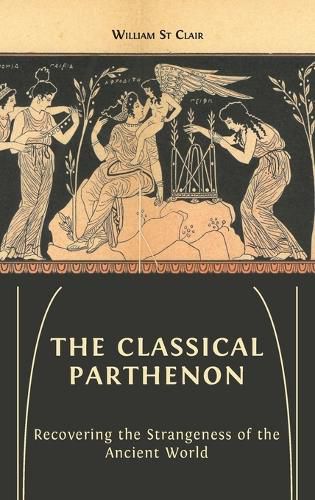Readings Newsletter
Become a Readings Member to make your shopping experience even easier.
Sign in or sign up for free!
You’re not far away from qualifying for FREE standard shipping within Australia
You’ve qualified for FREE standard shipping within Australia
The cart is loading…






This title is printed to order. This book may have been self-published. If so, we cannot guarantee the quality of the content. In the main most books will have gone through the editing process however some may not. We therefore suggest that you be aware of this before ordering this book. If in doubt check either the author or publisher’s details as we are unable to accept any returns unless they are faulty. Please contact us if you have any questions.
Complementing Who Saved the Parthenon? this companion volume sets aside more recent narratives surrounding the Athenian Acropolis, supposedly ‘the very symbol of democracy itself’, instead asking if we can truly access an ancient past imputed with modern meaning. And, if so, how?
In this book William St Clair presents a reconstructed understanding of the Parthenon from within the classical Athenian worldview. He explores its role and meaning by weaving together a range of textual and visual sources into two innovative oratorical experiments - a speech in the style of Thucydides and a first-century CE rhetorical exercise - which are used to develop a narrative analysis of the temple structure, revealing a strange story of indigeneity, origins, and empire.
The Classical Parthenon offers new answers to old questions, such as the riddle of the Parthenon frieze, and provides a framing device for the wider relationship between visual artefacts, built heritage, and layers of accumulated cultural rhetoric. This groundbreaking and pertinent work will appeal across the disciplines to readers interested in the classics, art history, and the nature of history, while also speaking to a general audience that is interrogating the role of monuments in contemporary society.
$9.00 standard shipping within Australia
FREE standard shipping within Australia for orders over $100.00
Express & International shipping calculated at checkout
This title is printed to order. This book may have been self-published. If so, we cannot guarantee the quality of the content. In the main most books will have gone through the editing process however some may not. We therefore suggest that you be aware of this before ordering this book. If in doubt check either the author or publisher’s details as we are unable to accept any returns unless they are faulty. Please contact us if you have any questions.
Complementing Who Saved the Parthenon? this companion volume sets aside more recent narratives surrounding the Athenian Acropolis, supposedly ‘the very symbol of democracy itself’, instead asking if we can truly access an ancient past imputed with modern meaning. And, if so, how?
In this book William St Clair presents a reconstructed understanding of the Parthenon from within the classical Athenian worldview. He explores its role and meaning by weaving together a range of textual and visual sources into two innovative oratorical experiments - a speech in the style of Thucydides and a first-century CE rhetorical exercise - which are used to develop a narrative analysis of the temple structure, revealing a strange story of indigeneity, origins, and empire.
The Classical Parthenon offers new answers to old questions, such as the riddle of the Parthenon frieze, and provides a framing device for the wider relationship between visual artefacts, built heritage, and layers of accumulated cultural rhetoric. This groundbreaking and pertinent work will appeal across the disciplines to readers interested in the classics, art history, and the nature of history, while also speaking to a general audience that is interrogating the role of monuments in contemporary society.